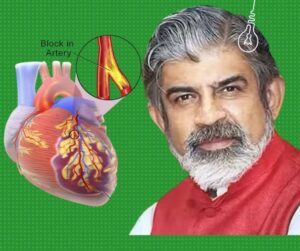Keto Diet: The Secret to Losing Weight and Improving Your Health

Keto Diet: A Comprehensive Guide
The keto diet is a high-fat, low-carbohydrate diet that has become popular in recent years. It involves restricting carbohydrate intake to 20-50 grams per day, which forces the body to burn stored fat for energy instead of carbohydrates.
When the body is in a state of ketosis, it produces ketones, which are molecules that can be used for energy by the brain and other organs. Ketones are also thought to have a number of health benefits, such as reducing inflammation and improving blood sugar control.
The keto diet has been shown to be effective for weight loss, improving blood sugar control, and reducing the risk of heart disease. However, it is important to note that the keto diet is a very restrictive diet and can be difficult to follow for long periods of time. It is also important to talk to your doctor before starting the keto diet, especially if you have any underlying health conditions.
Here are some of the potential health benefits of the keto diet:
- Weight loss: The keto diet is a very effective way to lose weight, especially in the short term. This is because the keto diet forces the body to burn stored fat for energy instead of carbohydrates.
- Improved blood sugar control: The keto diet can help to improve blood sugar control in people with diabetes and prediabetes. This is because the keto diet reduces the body’s reliance on carbohydrates, which can cause blood sugar levels to spike.
- Reduced risk of heart disease: The keto diet can help to reduce the risk of heart disease by improving cholesterol levels, blood pressure, and blood sugar control.
- Reduced inflammation: The keto diet has been shown to reduce inflammation throughout the body. This is thought to be one of the mechanisms by which the keto diet improves health.
- Improved cognitive function: The keto diet has been shown to improve cognitive function in people with Alzheimer’s disease and other forms of dementia. This is thought to be due to the fact that ketones can be used as an energy source by the brain.
If you are considering trying the keto diet, it is important to do your research and talk to your doctor first. The keto diet is not for everyone, and it is important to make sure that it is safe for you before starting.
Here are some tips for following the keto diet:
- Eat plenty of healthy fats: Healthy fats, such as those found in olive oil, avocado oil, and coconut oil, are an important part of the keto diet.
- Limit your carbohydrate intake: Carbohydrates should be limited to 20-50 grams per day. This means avoiding sugary drinks, grains, starchy vegetables, and fruits.
- Eat plenty of protein: Protein is essential for muscle growth and repair. Aim to eat 1-1.2 grams of protein per kilogram of body weight per day.
- Drink plenty of fluids: It is important to stay hydrated on the keto diet. Aim to drink at least 8 glasses of water per day.
Here are some sample keto diet meals:
- Breakfast: Scrambled eggs with cheese and avocado
- Lunch: Salad with grilled chicken or fish, avocado, and olive oil dressing
- Dinner: Salmon with roasted vegetables and olive oil dressing
If you are struggling to follow the keto diet on your own, there are a number of resources available to help you, such as books, websites, and support groups.
Advt
The keto diet is a high-fat, low-carbohydrate diet that has become popular in recent years. It involves restricting carbohydrate intake to 20-50 grams per day, which forces the body to burn stored fat for energy instead of carbohydrates.
The keto diet has been shown to be effective for weight loss, improving blood sugar control, and reducing the risk of heart disease. However, it is important to note that the keto diet is a very restrictive diet and can be difficult to follow for long periods of time. It is also important to talk to your doctor before starting the keto diet, especially if you have any underlying health conditions.









